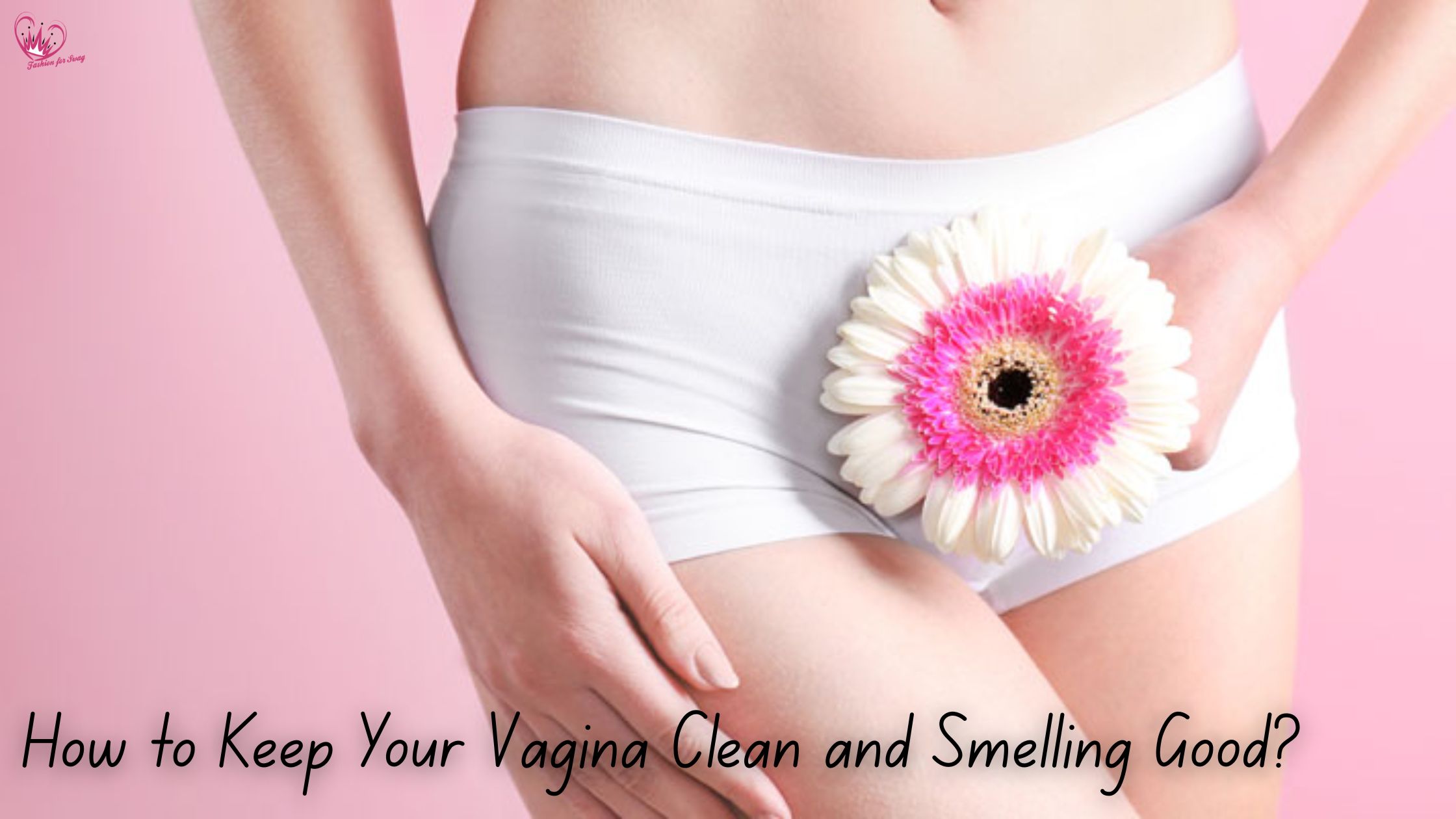
How to Keep Your Vagina Clean and Smelling Good?
In a world filled with endless personal care products and conflicting advice, the theme of female hygiene is often immersed in myth, insecurity and unnecessary complexity. Truth, however, is beautifully simple: vagina is a self-purity organ. A healthy vagina has its own natural, mild smell, and the key to keep it clean and keep it “good” is not in rigid chemicals or aromatic products, but in supporting its delicate, natural ecosystem.
This comprehensive guide, informed by gynecological best practices, will demystify vaginal hygiene, separate the essential “dos” from the harmful “don’ts,” and provide you with detailed, actionable steps to maintain a healthy, balanced, and fresh-smelling intimate area.
Understanding the Ecosystem—The Vagina vs. The Vulva
The first and most important step in proper intimate hygiene is understanding the difference between the vagina and the vulva.
- Vagina: It is an internal muscle canal that leads to the cervix. It is a self-clean powerhouse. It maintains a naturally acidic environment (about 3.5 to 4.5), mainly thanks to an army of beneficial bacteria of lactobacilli. These bacteria produce lactic acid, which keeps the pH low, effectively suppresses the growth of harmful bacteria and yeast. Cleanliness is obtained through a common, healthy discharge.
- Valva: This is the exterior of the female genitalia, including the opening of the labia, clitoris and vagina and urethra. This is the area you should clean.
- Golden Rule: Never wash inside your vagina. Doing so removes protective lactobacilli, enhances the pH, and disrupts natural flora, which irony is that increases the risk of infections such as bacterial veginosis (wife) and yeast infections, many things that cause unpleasant odors.
The Essential Hygiene Protocol (The “Dos”)
True hygiene and a healthy smell is a result of soft, external care and overall body maintenance.
1. Gentle
- Use only water or a light, unsafe soap: Daily cleaning of vulva requires all. Hot water is often sufficient. If you like to use Soap, choose a light, without thinking, and Ph-NEutral Bar or liquid cleanser. Think of the same soft cleanser that you will use on the sensitive skin of a child.
- Use your hands, not a vashakloth: Litar a small amount of soap in your hands and gently wash the vulva folds. Avoid using rough vashakloth, sponge, or lofah, as these can cause subtle tears, port bacteria, and can cause irritation.
- Rinse well and pat drought: Rinse the area with warm water to remove all soap residues. After washing, gently pat the vulva dry with a clean, soft towel. The remaining moisture can make a warm, moist environment ideal for the development of fungal and bacteria.
2. Mastering the Post-Toilet Wipe
- Always wipe forward from behind: This is a non-parasical rule. Wiping from the front (vulva/vagina) to wipe from the rectum to the vaginal and urethra prevents the transfer of fecal bacteria, which significantly reduces the risk of urinary tract infections (<\ \ text {UTI}} $ S) and vaginal infections.
3. Post-Intercourse Care
- Urine immediately: Bacteria can sometimes push into the urethra during sex. Immediately after sexual intercourse helps to remove these bacteria and is an important step in the prevention of UTI.
- Gentle Rinsing: Semen and some lubricants can temporarily affect vaginal pH. A quick, gentle wash of the outer vulva with warm water after sex can help restore balance and remove residues.
4. Clothing and Airflow
- Choose cotton underwear: Cotton is the best cloth for your underwear as it is breath and absorbent, allowing sweat to moisture and discharge to evaporate. It prevents a hot, moist environment that encourages yeast and bacteria to flourish.
- Change immediately with wet or sweaty cloth: Do not sit in a gym cloth for an extended period with a moist swimming suit or sweat. There is a reproductive ground for stuck moisture and heat infection. Immediately after the workouts, change your underwear and lower layer of clothing or at least.
- Wind it: Consider sleeping without underwear (“commando”) to allow the area to breathe maximum and keep it dry overnight.
5. Menstrual Hygiene
- Change the products often: Tampons, pads, or menstrual cups every four to six hours, or recommended. Menstrual products not only cause smell to stay very long, but can also increase the risk of infection, including very rare but severe toxic shock syndrome (TSS).
- Avoid aromatic products: Aromatic pads and tampons contain chemicals that can disturb sensitive vulvar skin and disrupt vaginal pH.
Avoiding the Mistakes (The “Don’ts”)
Many common habits designed to “cleanse” or “freshen” are the primary culprits behind odor-causing infections.
| Don’t Do This… | Why It’s Harmful… | Instead Do This… |
| Douching (Washing inside the vagina) | Disrupts the natural pH and wash the protective lactobacilli, causing infection (wives/yeast) and really becomes worse. | Wash the outer vulva only with warm water and/or a light, unsafe soap. |
| Using Scented Soaps, Gels, Wipes, Sprays, or Perfumes | Aroma and rigid chemicals sensitive vulvars cause irritation, inflammation and allergic reactions on the skin, possibly changing the vaginal pH. | Stick to the fragrance-free products for the vulva, and never use any aromatic product internal. |
| Wearing Tight, Synthetic Clothing | Traps create an ideal atmosphere for heat and moisture, bacteria and fungal growth, which causes smell and infection. | Wear loose clothes and breathe, cotton underwear. Change immediately by wearing a sweaty gym. |
| Ignoring a Strong or Foul Odor | The smell of a persistent, strong, or fish often indicates a medical issue such as bacterial veginosis or trichomoniasis, or a sweet/yeast odor may indicate a yeast infection. | Do not try to mask it. See a healthcare provider (OB-GYN) for proper diagnosis and prescription treatment (usually antibiotics or antifungals). |
| Putting Food in the Vagina | (Eg, garlic, yogurt, herbs). This is a popular but extremely dangerous folk remedy. It introduces foreign bacteria, irritability and sugar (which feeds the yeast) directly into the delicate ecosystem. | Orally take probiotics and seek medical treatment for infection. |
The Internal Connection—Diet and Lifestyle
Supported by a healthy lifestyle, actually a fresh fragrance comes from inside.
1. Hydrophy is the key
- Drink lots of water: Dehydration can concentrate waste products in your sweat and urine, which can cause a strong ammonia odor around the vulva. Being well hydrated helps to remove your system and keeps the outer areas clean.
2. The Power of Probiotics
- Eat probiotic-rich foods: Probiotics, especially lactobacillus strains, support a healthy balance of bacteria not only in your intestine, but also in your vagina. Include foods such as plain yogurt (with live and active cultures), kefir and fermented foods in your diet.
- Consider a targeted probiotic supplement: If you suffer from infections, a specific oral probiotic supplement prepared for women’s health can help maintain a healthy pH balance.
3. Manage Your Diet
- Avoid excessive sugar: High sugar intake can increase the risk of yeast overgrowth in the body, including the vagina, potentially pioneer for yeast infection and a sweet, bread -like odor.
- Mind Strong Foods: While not the cause of anxiety, very strong-hatred foods such as asparagus, garlic, onion and curry can sometimes affect the smell of all physical secretions including sweat and vaginal discharge.
When to See a doctor
While a mild, muscular, or slightly hanging odor is completely normal, sudden, strong, or persistent unpleasant odor indicates your body that something is wrong. Do not try to treat a dishonest smell with over-the-counter washes or douches. If you notice the change in odor with either of the following symptoms, you should make an appointment with your healthcare provider:
- Strong fisheries odor: often indicated bacterial veginosis (wife).
- Thick, cottage-paneer-like discharge: frequent indication of a yeast infection.
- Greenish-yellow, froth discharge: often indicated trichomoniasis (an STI).
- Itching, burning, swelling, or pain: They indicate irritation or infection.
The mystery of a healthy, clean and naturally fresh vagina is counter-counted knowledge: less. Trust your body’s congenital self-cleaning system, practice soft external hygiene, prioritize breathing clothes, and nourish your body from outside. By respecting the natural balance of your body, you will maintain optimal intimate health on the market without the need for any “female hygiene” product.



